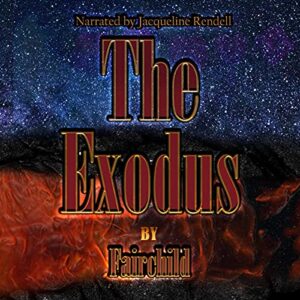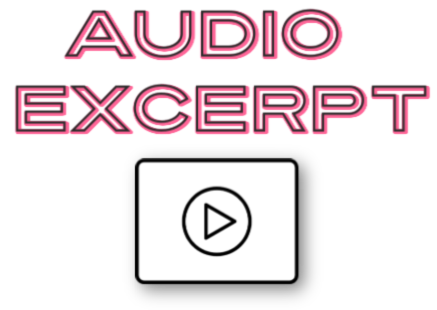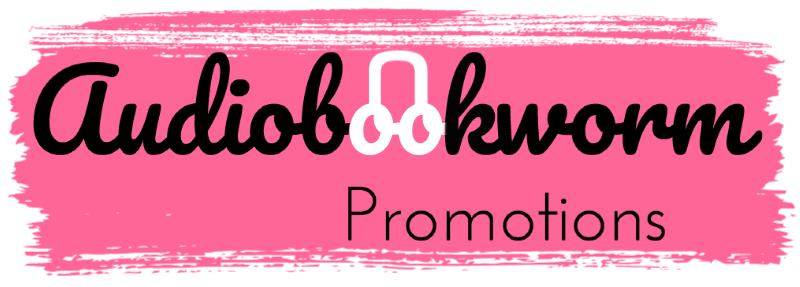
Author: David Fairchild
Narrator: Jacqueline Rendell
Length: 21 hours 22 minutes
Publisher: Four Doors Publishing LLC
Released: Apr. 28, 2021
Genre: Thriller


A girl who feels nothing; a boy who sees shadows and hears what others cannot; a baby without license to be born; a deaf teenager and scientific savant; offensive people; a general who passed law to hunt, imprison, and kill them all. Where do they hide when the sub-nations of the United States draw their own lines in the ground that dictate which people get to be oppressed and who gets to be offended? The Salvo Cartel built the tunnels to help them escape, to aid those with mental ailments, those who question, those who refuse to conform, gays, Christians, artists, people with scruples, and other deviants. Do they flee to Salvo's underground cities, with eyes set on a grander safe place? Where do they go when Lady Liberty douses her light? Perhaps the same place she's been pointing her torch towards ever since she stepped atop her pedestal and realized at once that one day she, too, would be told to shut up.


 David Fairchild resides in Spanish Fork, Utah and teaches writing at Utah Valley University. He has a background working in the amusement and entertainment industry, including: amusement parks, haunted houses and theatre. He is a retired ventriloquist and stand-up comic. He holds degrees in writing and communication. David writes and performs voice-over work all under the relentless supervision of his dog, Huxley (who insists he must sit in David's lap while he writes), and his cat, Chex (who refuses to stop climbing on his recording booth).
David Fairchild resides in Spanish Fork, Utah and teaches writing at Utah Valley University. He has a background working in the amusement and entertainment industry, including: amusement parks, haunted houses and theatre. He is a retired ventriloquist and stand-up comic. He holds degrees in writing and communication. David writes and performs voice-over work all under the relentless supervision of his dog, Huxley (who insists he must sit in David's lap while he writes), and his cat, Chex (who refuses to stop climbing on his recording booth).Website

 Jacqueline Rendell was a child actor, a member of ACTRA by 8 years old, performing in theatre and on TV. She competed in live story-telling competitions and also landed a story-telling spot on Today's Special. She absolutely loves to read and was always that kid who raised her hand to read the book aloud to the rest of the class. She has narrated over 30 projects, both non-fiction and fiction, and is an entrepreneur and musician. We are living in a paradigm of depending on multiple streams of income rather than one, and so I'm here to add this stream to my collection. She also has a textile line, Uplift Textiles, and makes tons of music for brands as well as songs for pure pleasure.
Jacqueline Rendell was a child actor, a member of ACTRA by 8 years old, performing in theatre and on TV. She competed in live story-telling competitions and also landed a story-telling spot on Today's Special. She absolutely loves to read and was always that kid who raised her hand to read the book aloud to the rest of the class. She has narrated over 30 projects, both non-fiction and fiction, and is an entrepreneur and musician. We are living in a paradigm of depending on multiple streams of income rather than one, and so I'm here to add this stream to my collection. She also has a textile line, Uplift Textiles, and makes tons of music for brands as well as songs for pure pleasure.Website

A Difficult Convenience: Why Audiobooks Demand Greater Skill and More Responsibility.
By David Fairchild
If you listen to audio books, no doubt you’ve had some person at some point suggest that it’s “cheating” in some way. Is it cheating? Without even bringing the power of the narrator into this discussion, the answer is: NO! It absolutely is not. But now ask if you get as much out of listening to it as you would reading it. Or how about, do audiobook listeners understand what they’re reading as much? Ah! Now that’s the question where I have to say, “Yes, but not if you’re only hitting the play button and letting the book run. Not if you’re not establishing true ownership over the audiobook by ignoring its content.” So now we ask “why?” The answer is, because listening, although it may seem to be a convenience, is much more difficult to perform and sustain than reading. Oh, you don’t believe me. Okay, fair enough. Let’s experiment. Go grab an audio book, preferably one that you haven’t read before. Okay now, get ready to turn it on and listen to it for exactly one minute. Be sure to hear every word and avoid every distraction. If you find your mind even thinking about a distraction. You have to start your minute over. You must give your audiobook your full attention for one full minute. Go ahead. One minute. Go! Easy, right? Okay, now. Do it again! Remember, don’t stray. Focus on listening and don’t stop paying attention. One minute. Go! Oh, this is too easy, isn’t it? Okay, you like something challenging. This time. Two minutes. No distractions. Focus, hear every word. Now, go! Ready to try it for five minutes? Just kidding. Because if you were able to sit in Richard Halley’s Listening Theory class or seminars as I was able to do, you’d have heard something about how it takes as much energy to listen for five minutes as it takes to run five miles. The fields of science and communication have even identified Listening Fatigue as that state we reach for concentrating on listening too much that our brains start to shut down. Does this mean that the audiobook listener isn’t able to get the full story out of their books that they listen to because the miss chunks of it by not listening? It does not. What it demonstrates is that the audiobook listener requires a different breed of reader to get the fullest experience from reading. It requires a breed that, in many ways, is more alert than the textual reader. Which would only suggest that the audiobook listener who really hears the literature through and through has to work harder for it than a textual reader, despite how we may perceive the audio as a convenience. Oh, but still not done. Remember those little distractions from our experiment? Let’s talk about those now. Those eat up listening time too. A variety of studies in the field of communication have identified that when we are listening to someone talk and something flies by the window, we stop listening and contemplate what flew past. We spend time realizing that someone is still speaking and that we’re not listening, then we spend time trying to see if we can figure out what information we missed, then we spend time realizing we’ll never figure out what we missed and that we should just start paying attention again. Studies have shown that the average listener misses anywhere from a few seconds all the way up to even more than half a minute when this happens. Add those distractions together without hitting the rewind button and paying full attention, and it’s easy to miss a lot of information within an audiobook. Ever find yourself yelling at your audiobook because you keep missing something that you think is important only to miss it again and rewind and miss again still ecause your mind wanders? That’s the power of distraction. Guess what? Textual readers don’t go to that degree. It’s much easier for them to not be distracted because when you’re staring at text, you’re less likely to see a bird flash past the window and take your attention. And it’s very unlikely that if the reader does turn to the distraction that the book of text in his hand is going to go, “Hey, you stopped reading. Very well. I’ll just continue on!” So, is listening to an audiobook inferior to reading a textual book? No. It’s superior in many ways because it demands more out of the reader. It requires more focus. It requires more energy. It requires more responsibility. Now, there’s one more detail about the reading experience we need to discuss if we’re really going to understand why people consider it an inferior reading form. For that, I turn to Mortimer Adler’s 1941 article “How to Mark a Book.” That’s right. It’s old, and it’s about taking notes in the margins of your book because it helps you establish a stronger understanding of the ideas contained in what you’re reading. Notes let you speak to the author, question the author, leave yourself input for the next time you read something. Notes allow us to record our personal thoughts on an issue. Doing so helps us own the information within our book. He even compares it to owning a steak. You can buy a steak, throw it in the freezer and you own it. But it’s not a part of you until you ingest it, and it becomes part of your blood stream. When you take notes in a book, you are ingesting that information and making it a part of you. I remember watching my classic lit professor opening her copy of The Iliad daily and watching the pages just spill out of her book because it had been used and studied so much and she just scooped the pages up and restored them to their proper order, hardly looking at them, because of how much she conversed with the author within that book. That raises the question of whether that means audiobook listening is inferior because audiobooks don’t have margins. And the answer is. NO! If you don’t have margins, you make them. Additionally, remember that you have a pause button. Use it when you take notes. We just discussed how a distraction can prevent us from listening. Note-taking, although beneficial, is a distraction to listening. When a textual reader takes notes, they stop reading to write them down. The audiobook reader should too, not just so they don’t miss the message of the audiobook, but also so their notes don’t lose focus and become confusing because the reader forgot how to word what they wanted to say or ask. Notebooks, whether paper or electronic, make good margins. Record the chapter and time stamp and make a note. Kindle offers a means to switch between book and audiobook. A person could pause the audiobook, then switch to the text and leave a note. There are many ways to create your own margins. Let’s ask the question again then. Are audiobooks inferior? Let’s see. They require more attention, devotion and energy to read than a textual book. Which suggests a higher plane of reading ability is required. The reader can also take and compile notes, just as with a printed book. If you know how to take notes and are willing to do so while putting in the energy to listen, then it is not inferior. It simply demands a more responsible reader to ensure they don’t miss the full message. If you’re not really listening to your books, it might be considered cheating just as speed reading would be considered cheating as it doesn’t gather all the ideas. But done responsibly, listening, focused understanding how to take notes to converse with your authors? No. It’s actually a higher plane of reading. Sure, there may be other arguments to be made as to why people think it’s cheating. Maybe it’s that you’re not reading the text to see the beauty of the words, which, yes, there’s beauty in words that you can’t hear in other media. But I think you can counter that with, there’s beauty in intonation that you can’t pick up on in text. Listen to a poet, you’ll hear it. Think on that the next time someone ridicules you for reading an audiobook.
David Fairchild's top 10 books that everyone should experience as an audiobook:
10) Watership Down by Richard Adams and narrated by Ralph Cosham
9) Dune by Frank Herbert; Narrated by Scott Brick, Orlagh Cassidy, Euan Morton, Simon Vance, Ilyana Kadushin
8) The Girl With All the Gifts by M.R. Carey and narrated by Finty Williams
7) Doctor Sleep by Stephen King and Narrated by Will Patton
6) The Suspect by Kent Alexander and Kevin Salwen; narrated by Paul Michael
5) NOS4ATU by Joe Hill and narrated by Kate Mulgrew
4) The Help by Kathryn Stockett and narrated by and Jenna Lamia, Bahni turpin, Octavia Spencer, Cassandra Campbell
3) The Exorcist written and narrated by William Peter Blatty
2) The Junie B. Jones Series by Barbara Park and Narrated by Lana Quintal
1) The Martian by Andy Weir and Narrated by RC Bray (Unfortunately, no longer for sale due to loss of publishing rights. You have to find someone who already owns it and borrow it).

Click here to view the full tour schedule!

Plugging you into the audio community since 2016.






Comments
Post a Comment